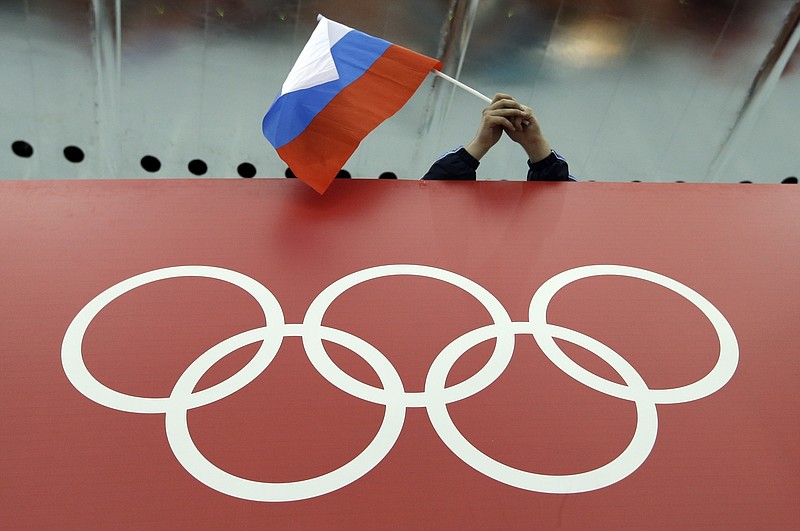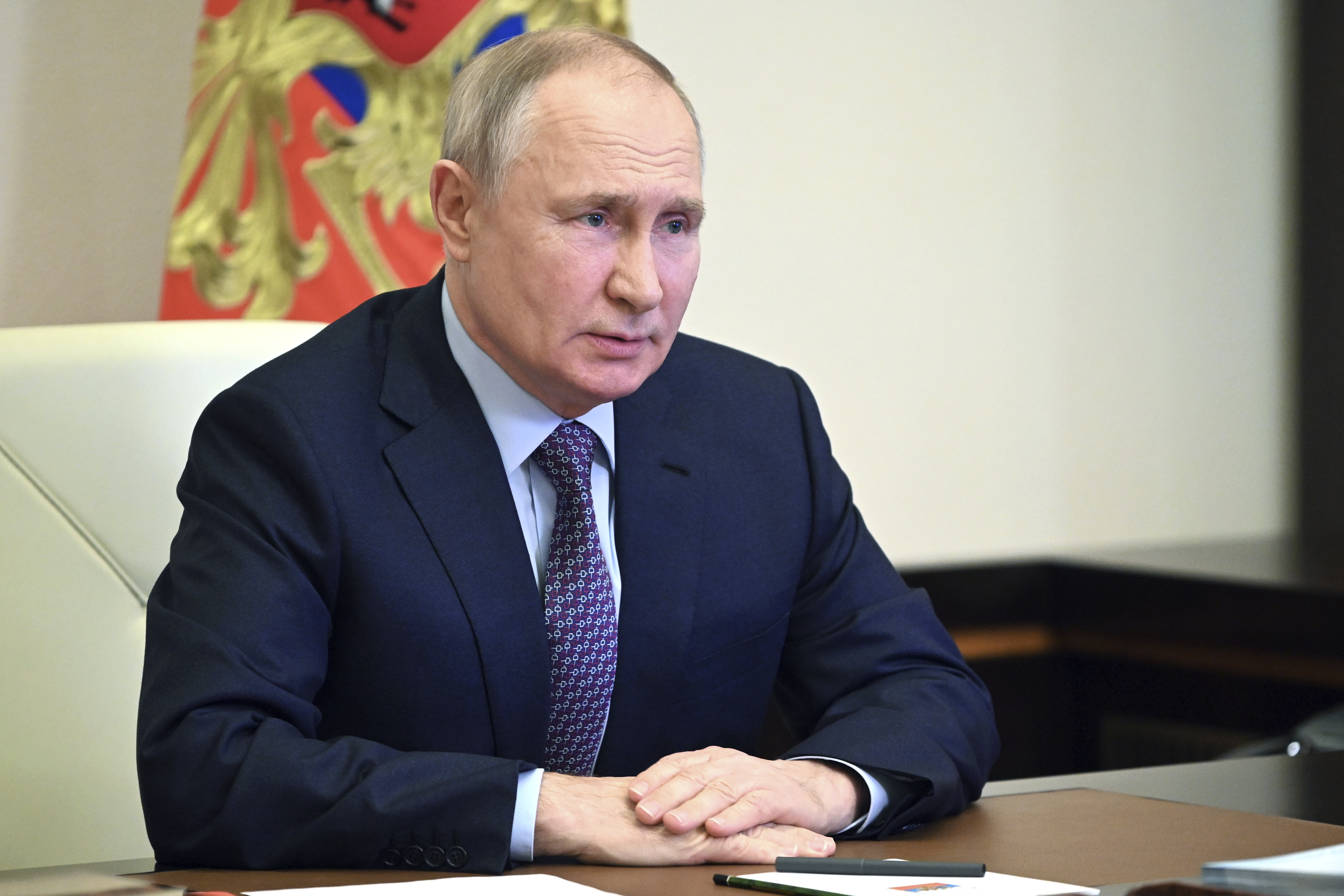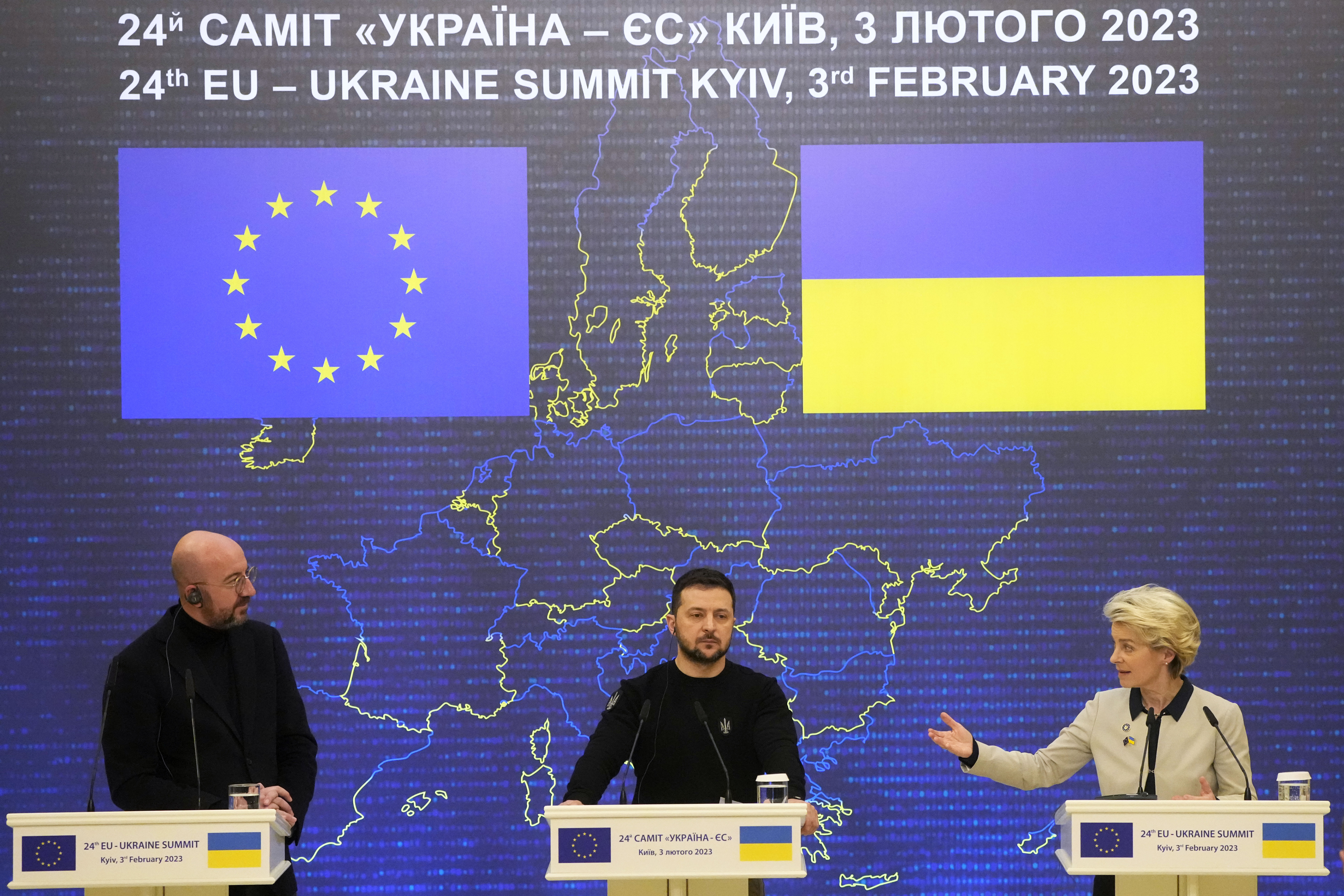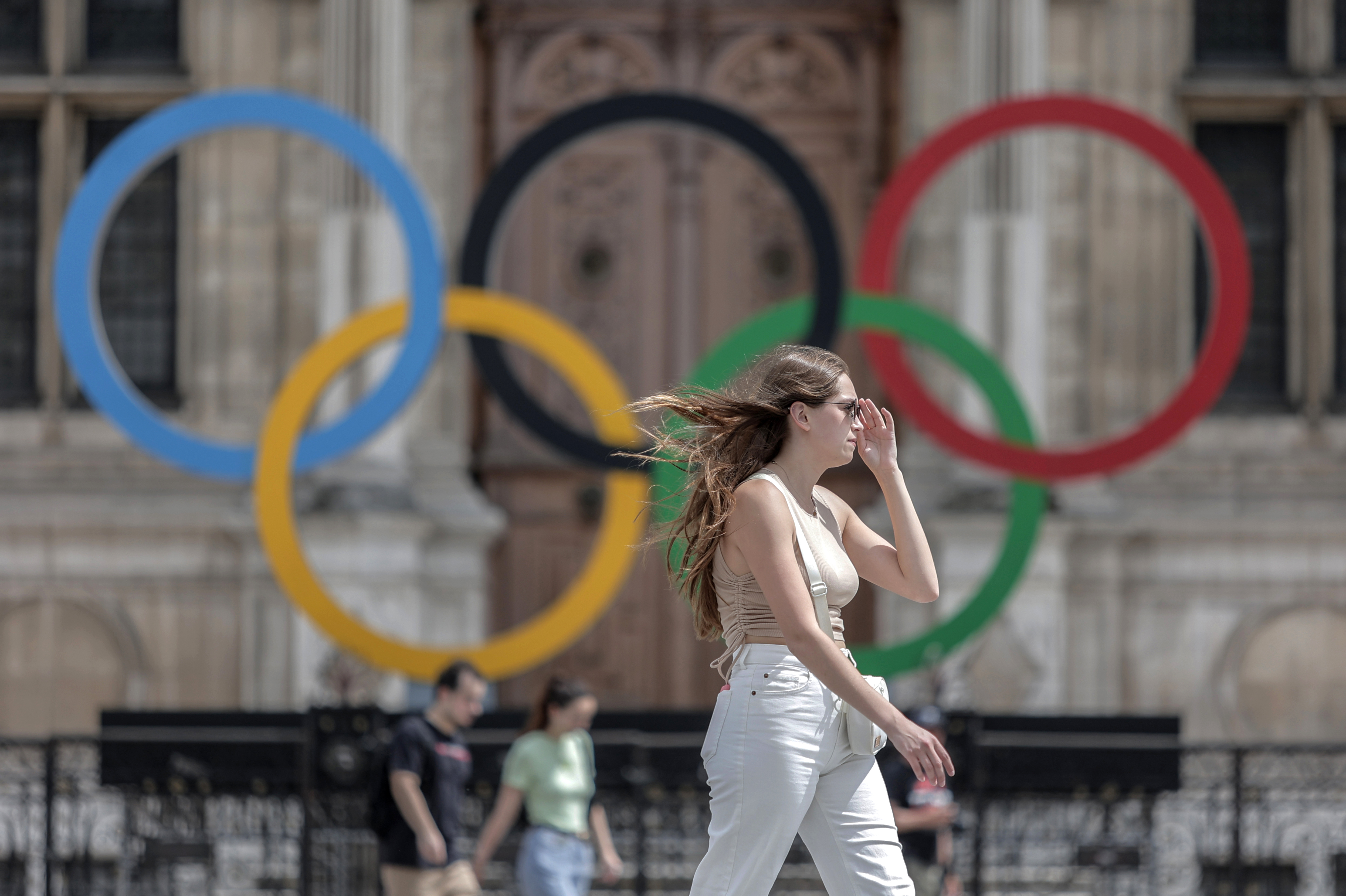The IOC likes to talk tough -- as long as it's not heading into an Olympic year.
Not surprisingly, as we draw ever closer to the cash cow that is Paris 2024, the hypocrites running the Olympic movement are eager to get Russia back in the games.
They'll surely find a way, despite Vladimir Putin's brutal invasion of Ukraine and growing threats of a boycott from those who don't think the Russians should be allowed anywhere near the City of Light -- even if, ludicrously, the IOC is trying to pass it off as a human rights issue.
Ukrainian president Volodymyr Zelenskyy put it more accurately: "A white or any neutral flag is impossible for Russian athletes. All their flags are stained in blood."
For once, just once, we'd love to see the International Olympic Committee do the right thing:
Make it clear that the Russians -- and their accomplices from Belarus -- will not be allowed to compete on the world's biggest sporting stage until they halt the war in Ukraine.
There's certainly precedent for such a decision.
• After World War I, the losing countries -- Germany, Austria, Hungary, Bulgaria and Turkey (the successor to the Ottoman Empire) -- were barred from the 1920 Olympics in Antwerp. In fact, Germany's ban lasted until 1928.
• The IOC acted in similar fashion against the two nations blamed for igniting World War II. Germany (which had split into two countries) and Japan were prohibited from competing at the 1948 Winter Games in St. Moritz, as well as the Summer Games a few months later in London.
• South Africa was rightfully barred from the Olympics from 1964 through 1988 and kicked out of the IOC altogether for waging war on its own people through its abhorrent apartheid system. Only when white-minority rule collapsed was South Africa allowed to compete again at the Barcelona Games in 1992.
IOC officials maintain that Russia doesn't deserve to be treated like South Africa because it's not under United Nations sanctions.
Of course, that's a disingenuous argument. Russia is a permanent member of the Security Council, which means it has the right to veto any measure. In other words, there is no chance of UN sanctions -- which presumably means the Russians could never be barred from the Olympics.
Frankly, Russia should've been kicked out after its massive, state-sponsored doping ring from the 2014 Sochi Winter Games was exposed, not to mention its continued efforts to cover up a level of cheating that hadn't been seen since the notorious East German days.
But the IOC could never muster the courage to pull the trigger on a proper punishment, instead allowing the Russians to compete at the last three Olympics as supposedly neutral athletes known by the ludicrous monikers of OAR (Olympic Athletes from Russia) and ROC (Russian Olympic Committee).
Putin launched his invasion of Ukraine a mere four days after the closing ceremony of the 2022 Beijing Winter Games, a curious sense of timing that may not have been coincidental.
At that point, with the next Olympics nearly 2 1/2 years away, the IOC could lead worldwide sanctions that barred Russian and Belarusian athletes from competing at most international competitions across a wide range of sports.
Those bans largely remain in place, but now the next Olympics are a year closer. The IOC has changed course, looking for a way out to give a pair of warmongering nations a way in.
With its usual double-speak, the IOC said its mission is "to unite the entire world in a peaceful competition." Instead, its cow-towing to Russia could spark the biggest Olympic boycott since the Cold War era.
Ukraine has raised the possibility of sitting out the Paris Games if the Russians are there. Neighboring countries such as Poland and the Baltic states of Latvia, Lithuania and Estonia have signaled they may be willing to follow that lead.
The United States is highly unlikely to join such a protest, especially after the Jimmy Carter-led boycott of the 1980 Moscow Olympics over the invasion of Afghanistan is largely viewed as a major blunder that left behind lingering bitterness from athletes who missed out on their once-in-a-lifetime opportunity.
The new leader of the U.S. Olympic and Paralympic Committee sent out a letter to athletes and other stakeholders last week, reiterating the organization's support for finding a way for Russian athletes to compete in Paris as neutrals.
"We encouraged the IOC to continue exploring a process that would preserve the existing sanctions, ensuring only neutral athletes who are clean are welcome to compete," Gene Sykes wrote. "If these conditions of neutrality and safe, clean, and fair competition can be met, we believe the spirit of the Olympic and Paralympic Games can prevail."
Your move, IOC.
For once, do your best.
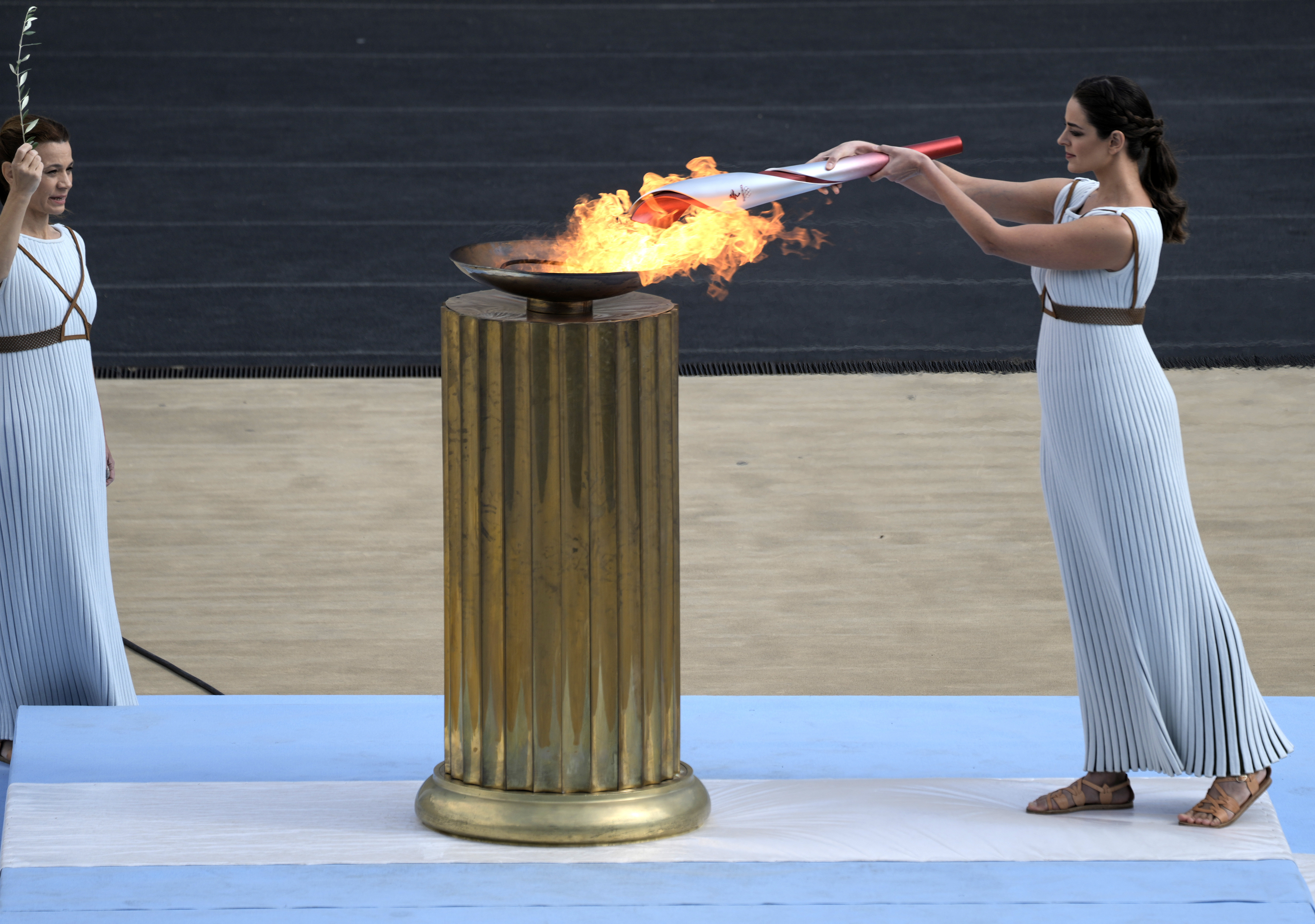 FILE - Greek actress Xanthi Georgiou, playing the role of High Priestess, lights the torch with the flame during the Olympic flame handover ceremony at Panathinean stadium in Athens, Greece, Tuesday, Oct. 19, 2021. Instead of arriving overland, the symbolic flame alighting the Paris 2024 Games will take to the seas from its birthplace in Greece, arriving aboard a three-masted tall ship in the French port of Marseille. Paris 2024 organizers announced the flame's journey Friday Feb.3, 2023 at City Hall in Marseille, a former Greek colony founded 2,600 years ago. (AP Photo/Petros Giannakouris, File)
FILE - Greek actress Xanthi Georgiou, playing the role of High Priestess, lights the torch with the flame during the Olympic flame handover ceremony at Panathinean stadium in Athens, Greece, Tuesday, Oct. 19, 2021. Instead of arriving overland, the symbolic flame alighting the Paris 2024 Games will take to the seas from its birthplace in Greece, arriving aboard a three-masted tall ship in the French port of Marseille. Paris 2024 organizers announced the flame's journey Friday Feb.3, 2023 at City Hall in Marseille, a former Greek colony founded 2,600 years ago. (AP Photo/Petros Giannakouris, File) FILE - Olena Kostevych and Bogdan Nikishin, of Ukraine, carry their country's flag during the opening ceremony in the Olympic Stadium at the 2020 Summer Olympics, on July 23, 2021, in Tokyo, Japan. Ukraine has stepped up efforts to lobby international sports leaders against Russian participation in next year’s Paris Olympics as indications mount that the games could see the biggest boycott since the Cold War. (AP Photo/David J. Phillip, File)
FILE - Olena Kostevych and Bogdan Nikishin, of Ukraine, carry their country's flag during the opening ceremony in the Olympic Stadium at the 2020 Summer Olympics, on July 23, 2021, in Tokyo, Japan. Ukraine has stepped up efforts to lobby international sports leaders against Russian participation in next year’s Paris Olympics as indications mount that the games could see the biggest boycott since the Cold War. (AP Photo/David J. Phillip, File)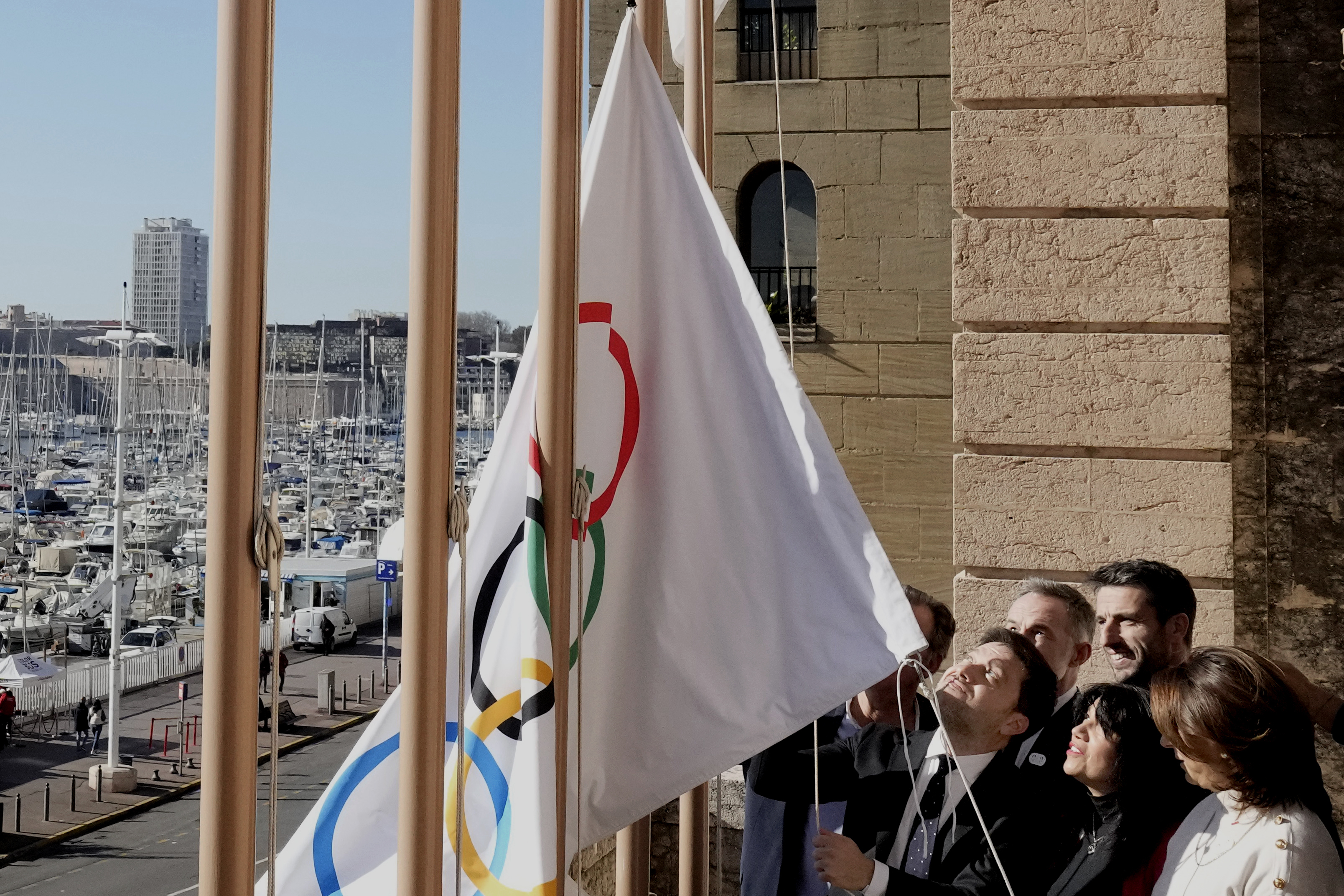 Mayor of Marseille Benoit Payan, center, raises the Olympic flag with Head of Paris 2024 Olympics Tony Estanguet, center right, after a press conference at the Marseille City Hall, southern France, Friday, Feb. 3. 2023. Instead of arriving overland, the symbolic flame alighting the Paris 2024 Games will take to the seas from its birthplace in Greece, arriving aboard a three-masted tall ship in the French port of Marseille. (AP Photo/Thibault Camus)
Mayor of Marseille Benoit Payan, center, raises the Olympic flag with Head of Paris 2024 Olympics Tony Estanguet, center right, after a press conference at the Marseille City Hall, southern France, Friday, Feb. 3. 2023. Instead of arriving overland, the symbolic flame alighting the Paris 2024 Games will take to the seas from its birthplace in Greece, arriving aboard a three-masted tall ship in the French port of Marseille. (AP Photo/Thibault Camus)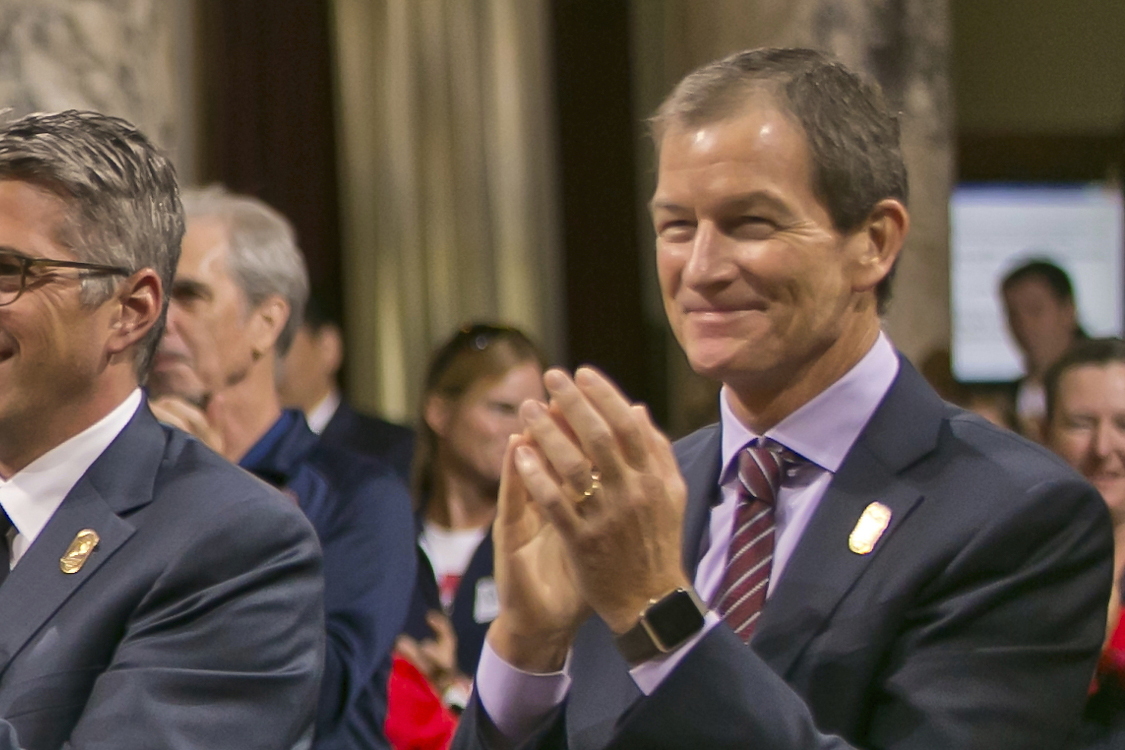 FILE- Gene Sykes claps after City Council voted 12-0 to endorse documents at the heart of its plan to stage the Summer Olympics for the third time since 1932, in Los Angeles on Aug. 11, 2017. The new leader of the U.S. Olympic and Paralympic Committee has reiterated the federation’s support for exploring a way for Russian athletes to compete at the Paris Olympics as neutrals. (AP Photo/Damian Dovarganes, File)
FILE- Gene Sykes claps after City Council voted 12-0 to endorse documents at the heart of its plan to stage the Summer Olympics for the third time since 1932, in Los Angeles on Aug. 11, 2017. The new leader of the U.S. Olympic and Paralympic Committee has reiterated the federation’s support for exploring a way for Russian athletes to compete at the Paris Olympics as neutrals. (AP Photo/Damian Dovarganes, File)